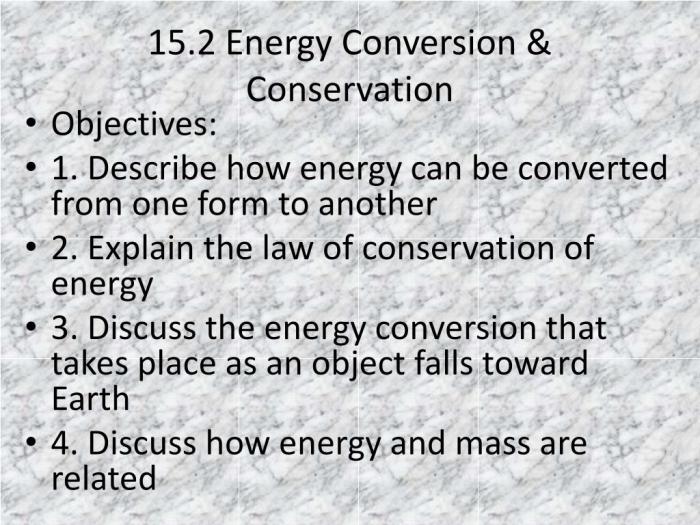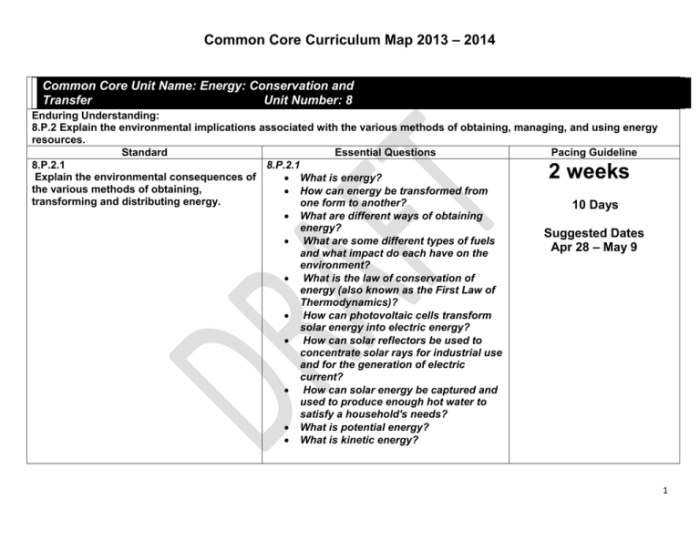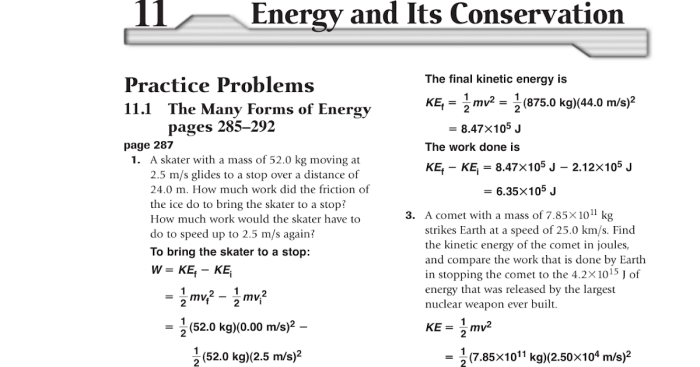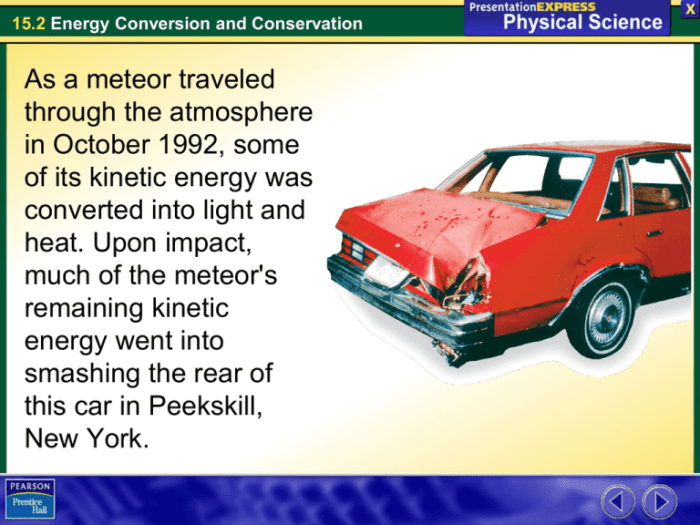Section 15.2 energy conversion and conservation – In the realm of energy, the principles of conversion and conservation hold paramount importance, shaping the very fabric of our modern world. Section 15.2 delves into these fundamental concepts, exploring the intricate dance between different energy forms and the imperative of preserving this precious resource.
From the bustling streets of industry to the tranquil embrace of nature, energy conversion and conservation touch every aspect of our lives. This section embarks on a journey to unravel the mysteries of energy transformation, the technologies that harness its power, and the strategies that safeguard its vitality.
1. Energy Conversion and Conservation Principles

Energy conversion and conservation are fundamental concepts that underpin our understanding of energy and its role in the universe. These principles guide the design and operation of energy systems, from simple machines to complex power plants.
1.1. First Law of Thermodynamics
The first law of thermodynamics states that energy cannot be created or destroyed, only transferred or transformed from one form to another. This principle is essential for understanding energy conversion processes and the conservation of energy in closed systems.
1.2. Energy Conversion Processes
- Mechanical to electrical: generators convert mechanical energy into electrical energy.
- Chemical to thermal: combustion reactions convert chemical energy into thermal energy.
- Solar to electrical: solar panels convert light energy into electrical energy.
1.3. Energy Conservation, Section 15.2 energy conversion and conservation
Energy conservation refers to the principle that energy cannot be created or destroyed. This implies that the total amount of energy in a closed system remains constant, even though it may change form.
Questions Often Asked: Section 15.2 Energy Conversion And Conservation
What is the first law of thermodynamics?
The first law of thermodynamics states that energy cannot be created or destroyed, only transferred or transformed from one form to another.
How does a generator convert energy?
A generator converts mechanical energy into electrical energy by spinning a conductor in a magnetic field.
What are the benefits of energy conservation?
Energy conservation reduces greenhouse gas emissions, mitigates climate change, and preserves natural resources.


